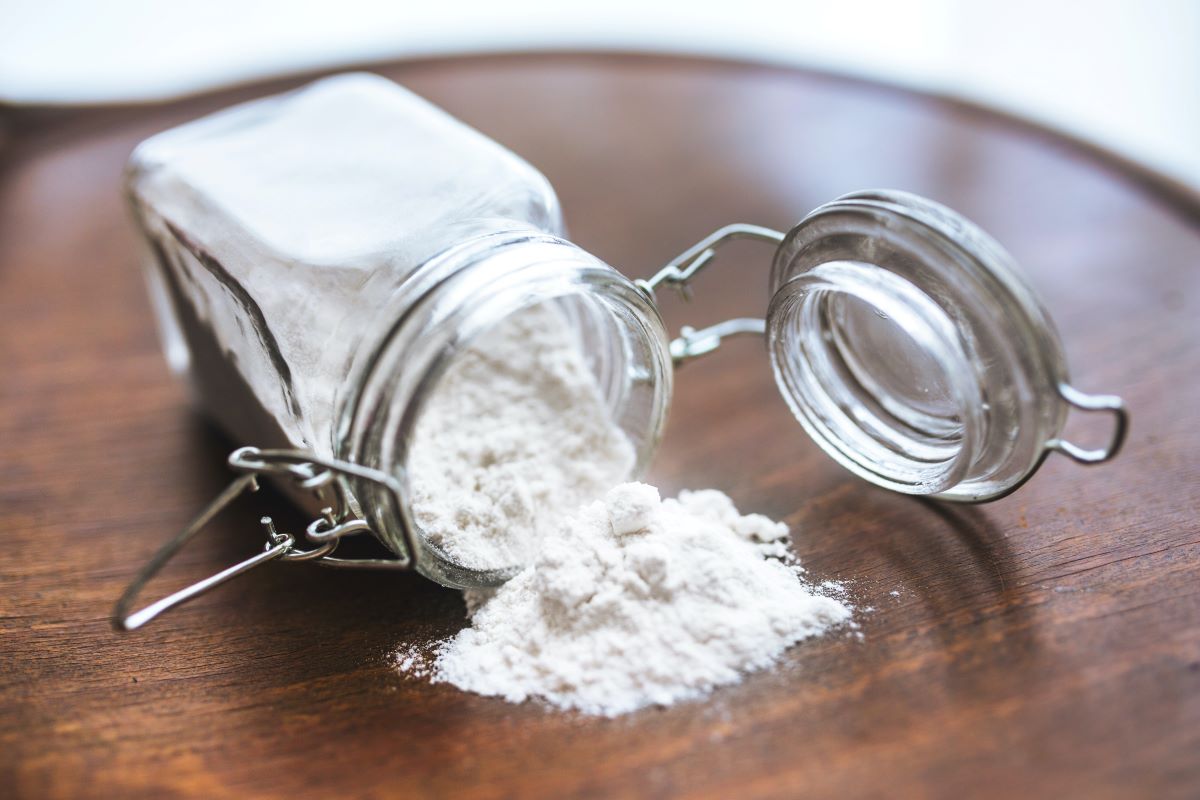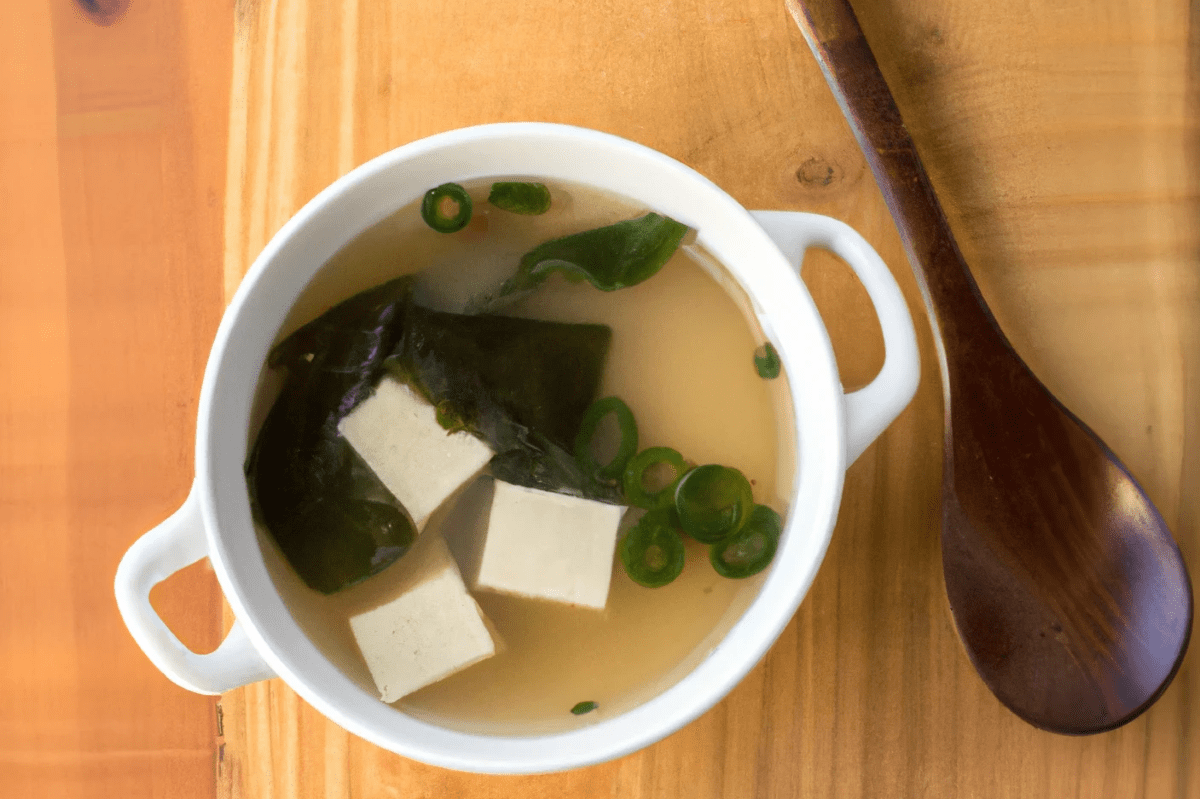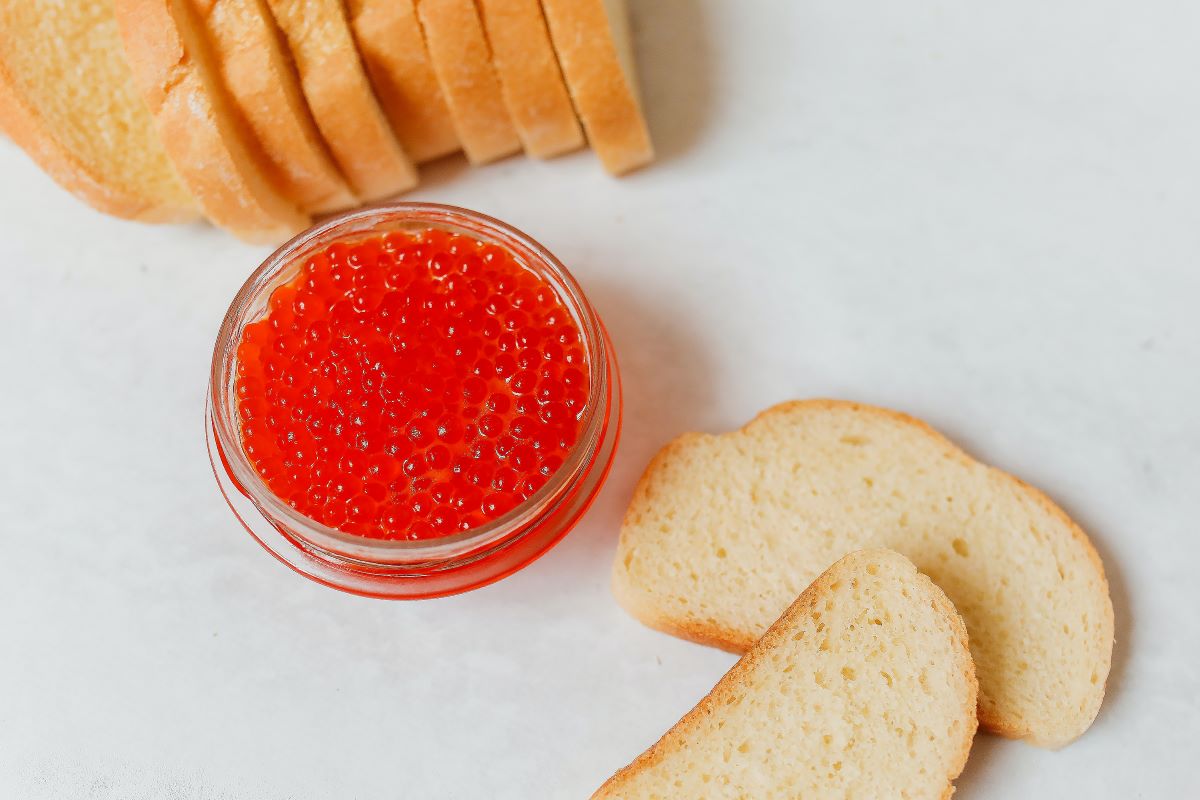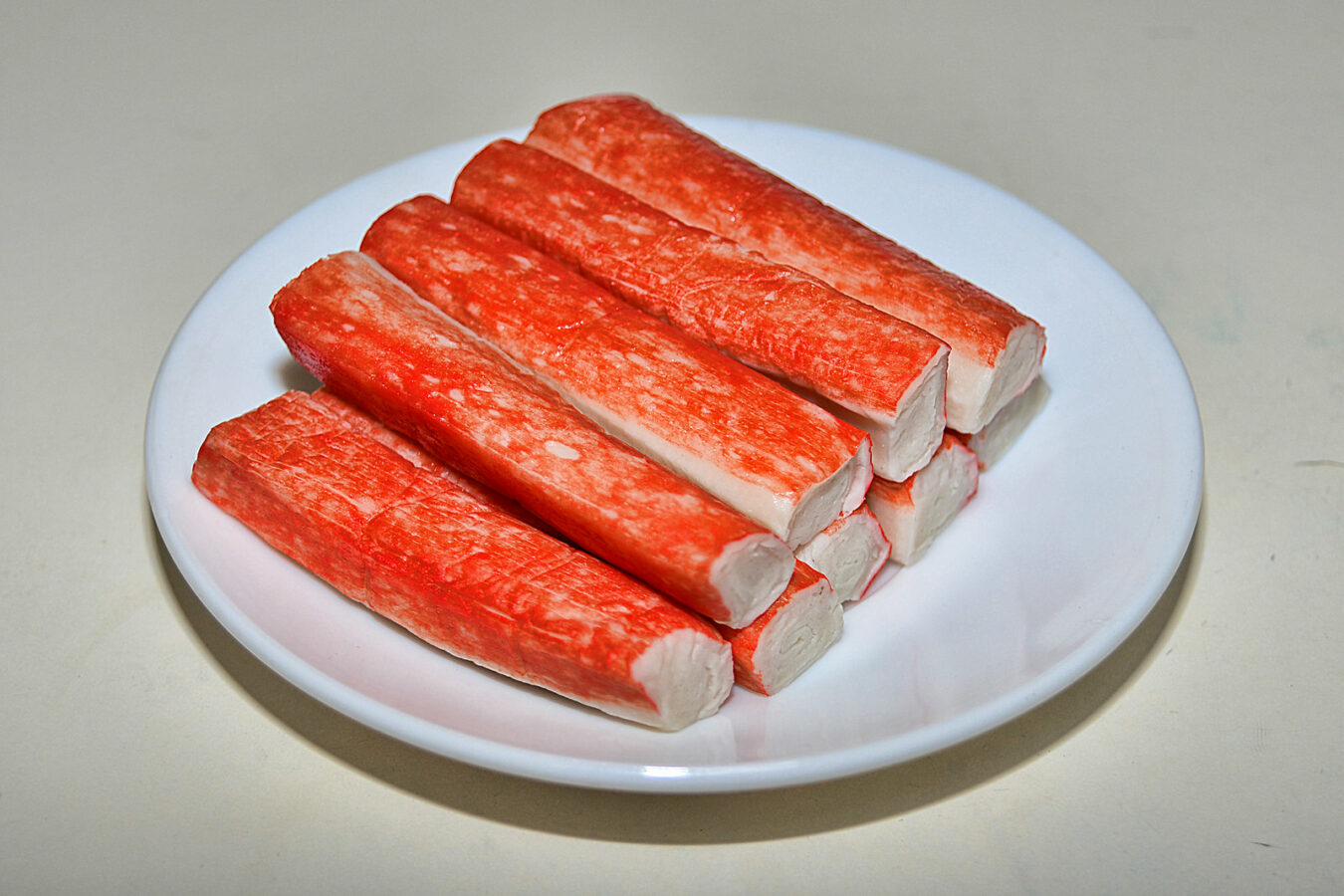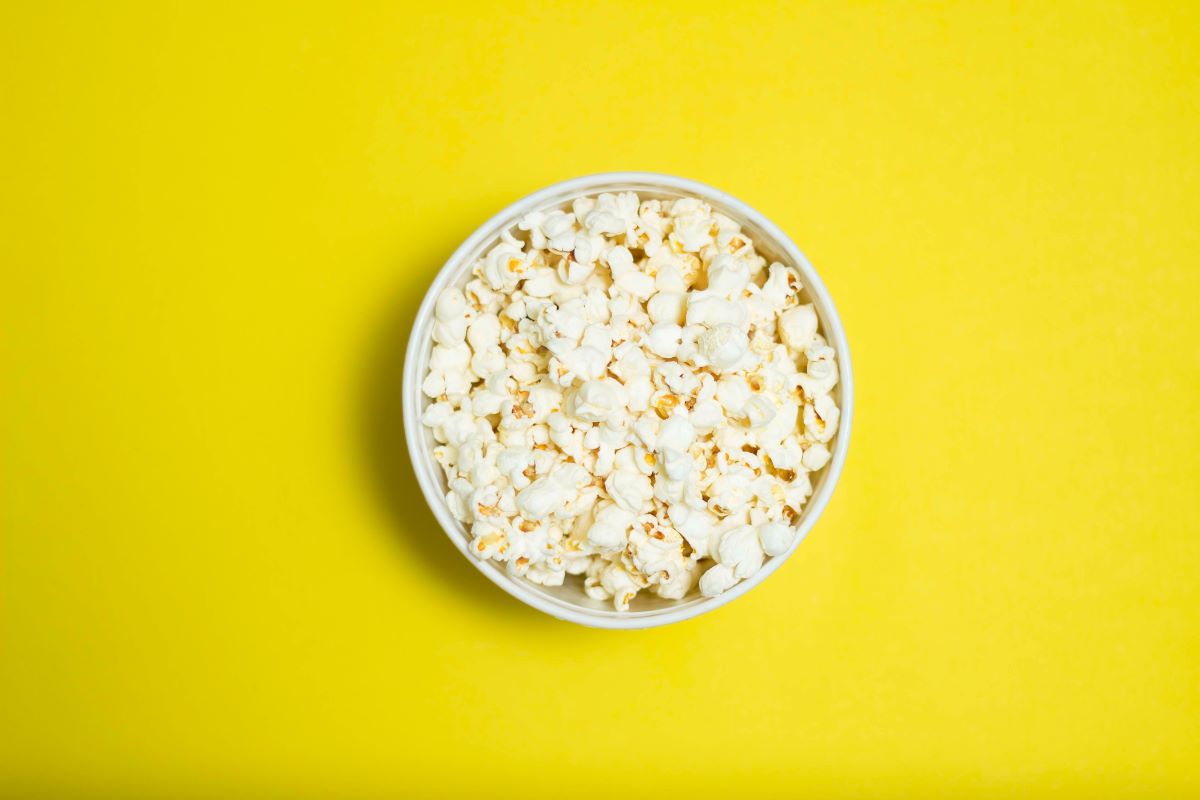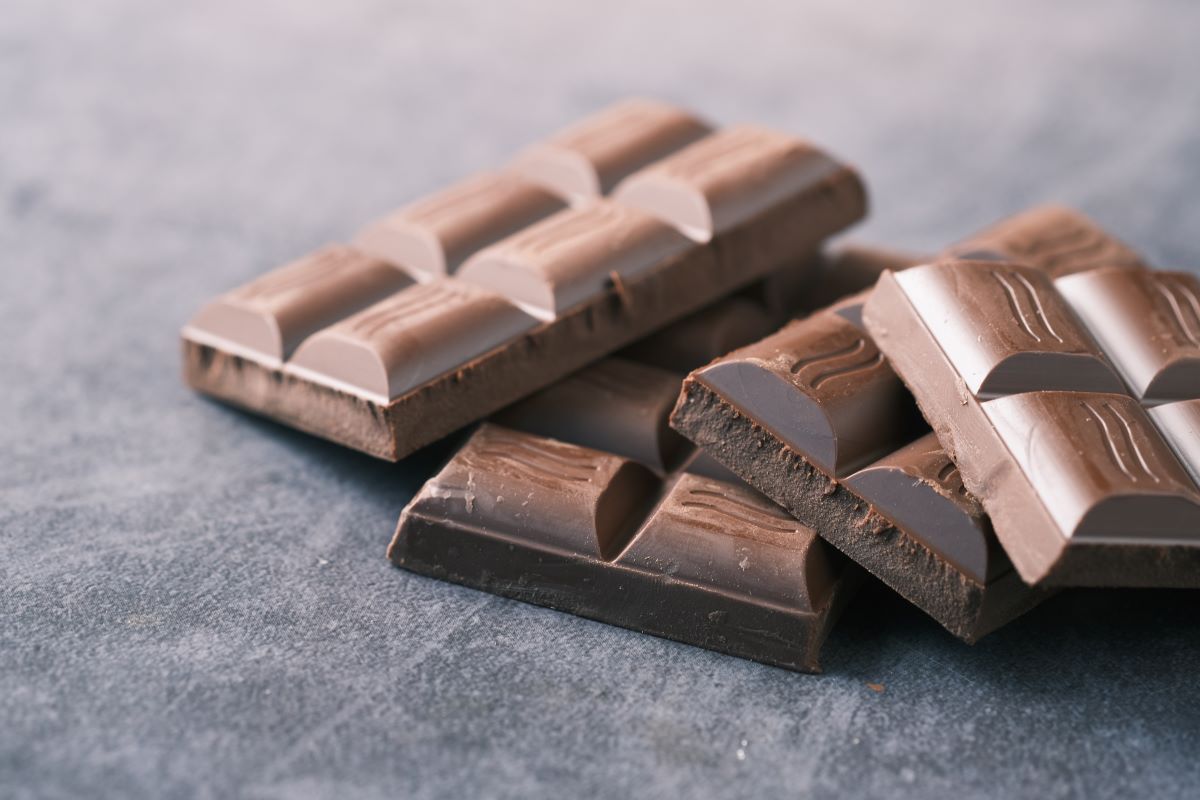Table of Contents
Flour is a pantry staple in households worldwide. Cooks use it in recipes to make bread, cakes, sauces, and batters. But for someone who follows a vegan diet, “Is flour vegan?” is crucial.
Is Flour Vegan?
Yes, flour is generally vegan. Grinding grains, seeds, or roots into a fine powder is an ancient method using mills or grinding stones. Most flour, including white flour, wheat flour, and whole wheat flour, comes from plants and doesn’t contain animal products or by-products.
However, vegans should note there are exceptions and gray areas. Some flour may contain non-vegan additives or rely on non-vegan processing methods.
Non-Vegan Ingredients or Processes
The main ingredient of flour is plant-based. However, non-vegan ingredients or processes influence the processing of certain types of flour. For example:
L-Cysteine
This amino acid is a dough conditioner used in bread and other baked goods. It’s derived from human hair, duck feathers, or hog hair, making it non-vegan.
Bone Char
Some sugar used in flour production may contain bone char, a substance made from animal bones. This is common in the United States.
Vitamin D
Some flour brands fortify their product with vitamin D3. Lanolin (wool grease) is an animal product harvested from sheep.
Monocalcium Phosphate
This leavening agent is common in self-rising flour and baking powder. Minerals or animal bones are typical sources.
Controversies or Gray Areas within the Vegan Community
The use of bone char in sugar processing and the addition of non-vegan additives like L-cysteine and monocalcium phosphate are controversial topics within the vegan community.
Some vegans avoid products that use any animal-derived substances. Others are more lenient and focus on avoiding direct animal ingredients. The environmental impact of wheat production, synthetic fertilizers, and pesticides also impact vegan lifestyle choices.
Types of Flour
Stores and markets sell different types of flour, each with a unique flavor profile, nutritional value, and uses in cooking and baking. The most popular types of flour include
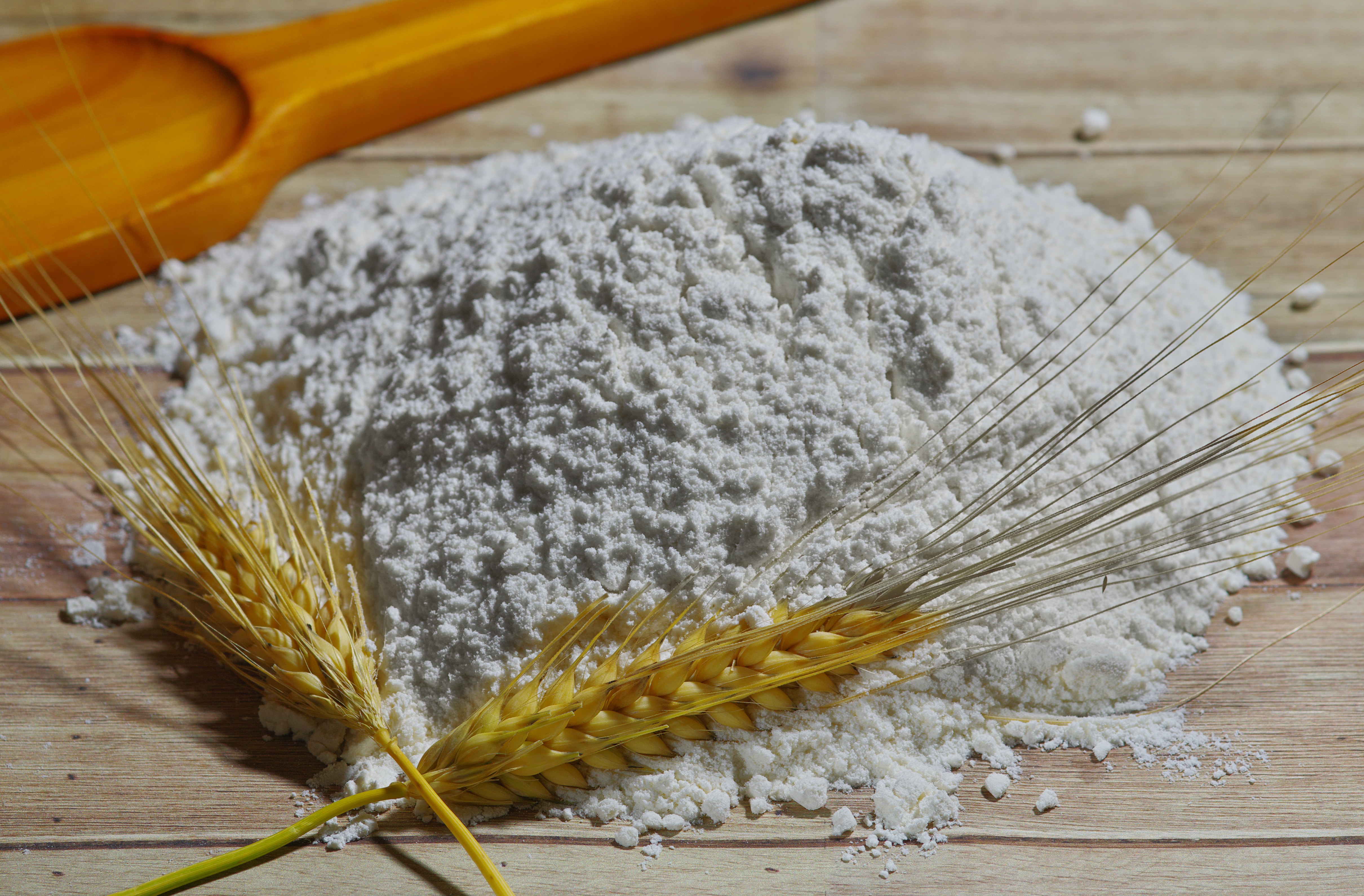
White Flour
This is the most popular type of flour made from wheat grains, with bran and germ removed. It’s bleached to produce a whiter color and finer texture.
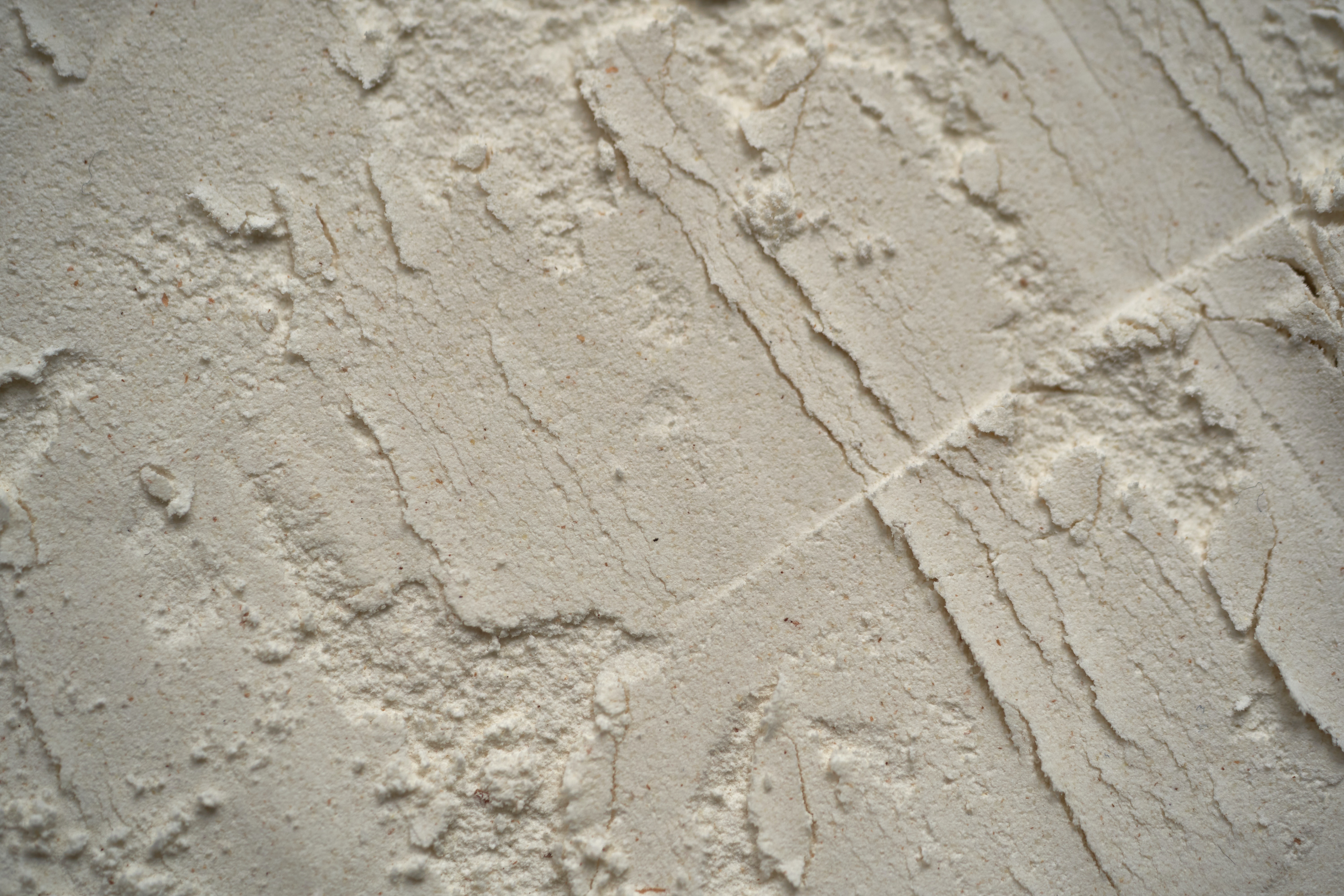
Whole Wheat Flour
This flour comes from whole wheat grains, including the bran, germ, and endosperm. It has a higher fiber and nutrient content compared to white flour.
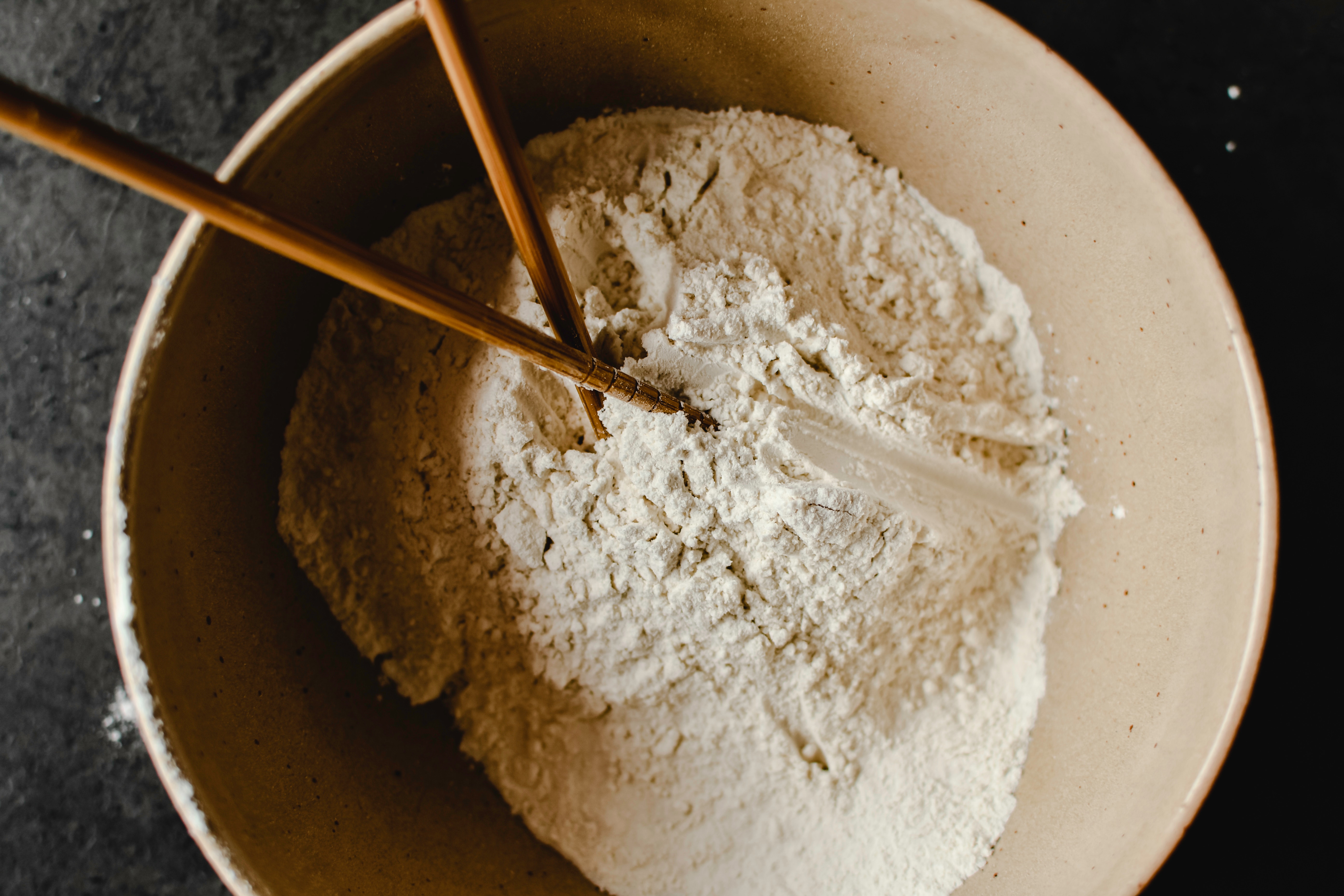
Bread Flour
Wheat flour has a higher protein content, making it ideal for baking bread and other yeast-based products.
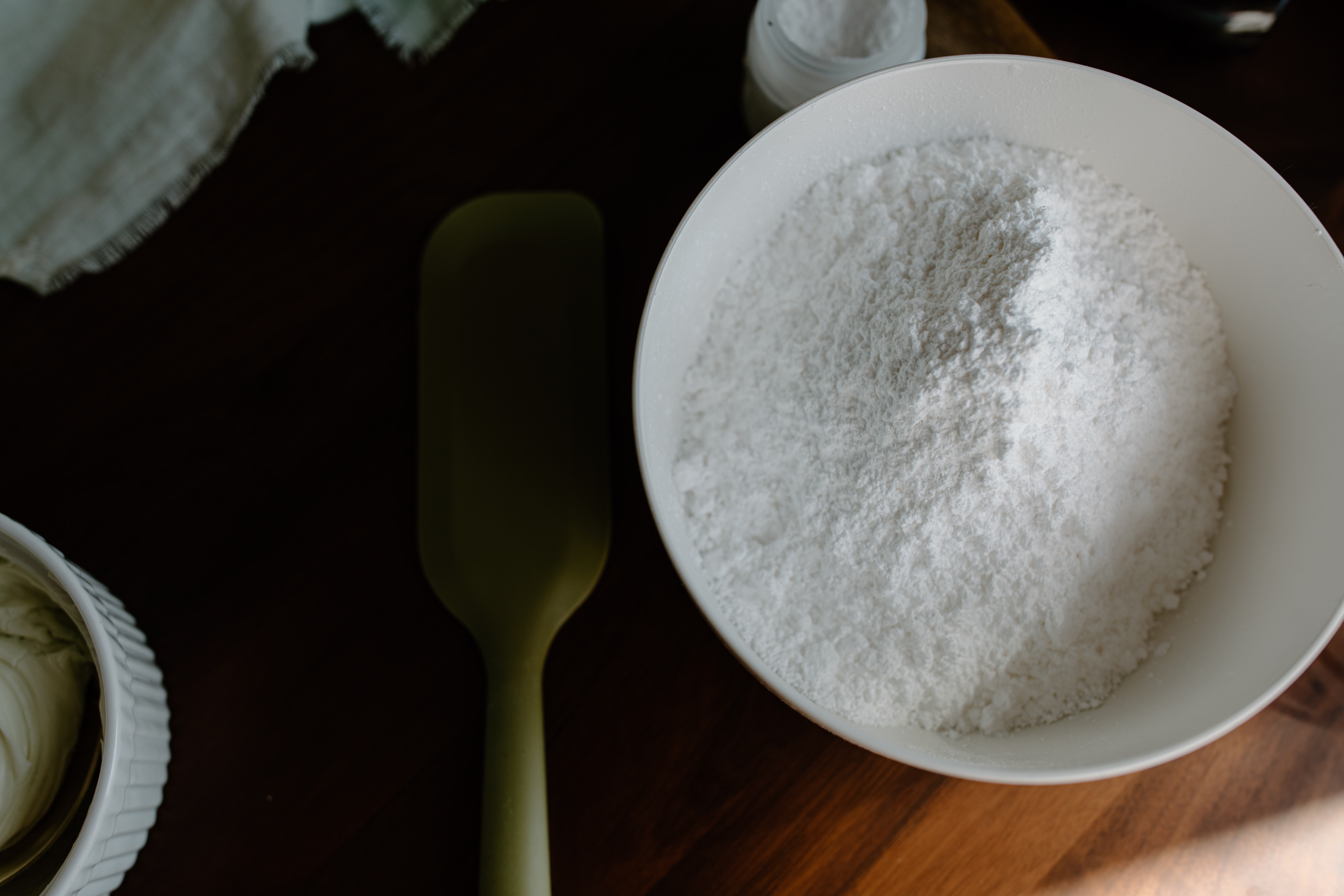
Cake Flour
This is finely milled wheat flour with lower protein content, making it ideal for baking light and fluffy cakes.
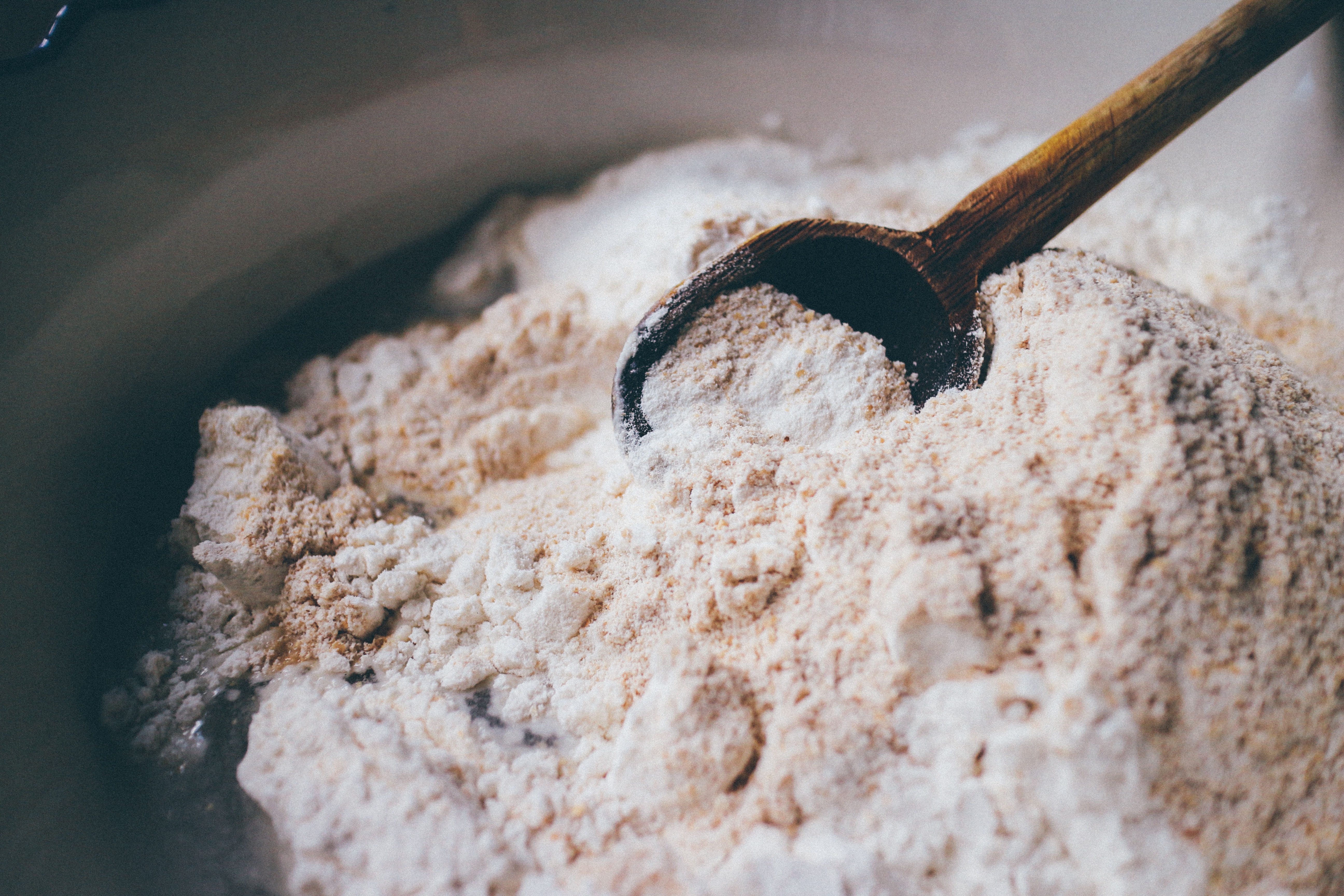
Self-Rising Flour
This type of flour contains baking powder and salt already mixed in.
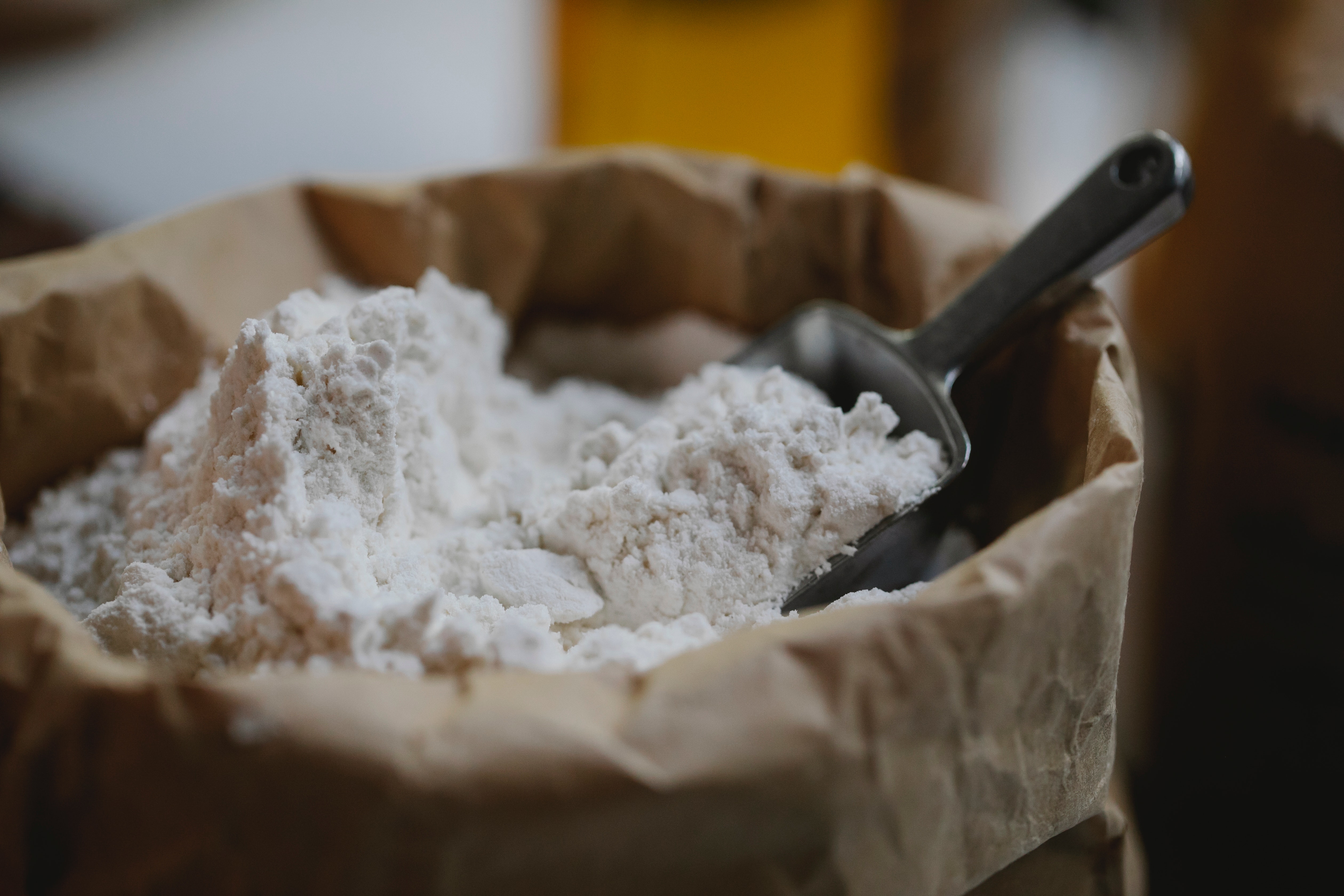
Gluten-Free Flours
These flours don’t contain gluten. It suits people with chronic health conditions like celiac disease or gluten sensitivity. Rice flour, almond flour, coconut flour, and chickpea flour are healthy alternatives.
Vegan-Friendly Alternatives and Variations
Fortunately for vegans, plenty of vegan-friendly alternatives and variations are available. Manufacturers produce flour labeled explicitly as vegan. This strict label indicates the product doesn’t contain animal-derived ingredients or non-vegan processing methods. Health food sections or specialty aisles in grocery stores and online cater to these demands.
Store-Bought Alternatives
Several companies produce vegan-friendly flours. For example, King Arthur Flour makes a variety of flour, including white flour, whole wheat flour, and gluten-free flour. These flours have certified vegan status. Bob’s Red Mill is another famous brand that offers a wide range of vegan flour, including almond flour, coconut flour, and chickpea flour. Both brands label their products as vegan, making it easy to identify them.
Tips for Identifying Vegan-Friendly Options
When looking for vegan-friendly flour options, here are some tips to remember.
Check the Label
Look for flour with a specific vegan label. This label means it doesn’t contain animal-derived ingredients or additives and uses non-vegan processing methods.
Look for Certain Certifications
Look for certifications such as “Certified Vegan” or “Vegan Society Approved” on the packaging. These certifications guarantee the product meets vegan standards.
Be Aware of Additives
Be aware of common non-vegan additives such as L-cysteine, monocalcium phosphate, and vitamin D, and check the ingredient list.
Consider the Type of Flour
Some types of flour, such as almond flour and chickpea flour, are naturally vegan-friendly. Ground almonds or chickpeas don’t contain any non-vegan additives.
Homemade Versions
Making flour at home is another way to ensure it is vegan-friendly.
Ingredient Swaps
If you prefer to make flour at home, several vegan ingredients alternatives exist, making it easy to swap them from regular ingredients.
For example, use coconut or organic cane sugar instead of regular sugar. These sugars don’t use bone char in the processing. Regular baking powder may contain monocalcium phosphate, but you can make vegan baking powder by mixing equal parts of baking soda and cream of tartar.
When you make your own, you have complete control over the ingredients and maintain your vegan principles.
How To Use Vegan Alternatives in Recipes
Using vegan alternatives in recipes is straightforward. Most vegan flour, like almond flour, chickpea flour, and coconut flour, works the same way as regular flour. However, there are a few things to keep in mind.
Different types of flour have different textures and flavors. This means you need to adjust the quantity of liquid in the recipe. For example, coconut flour is highly absorbent and requires more liquid for the recipe.
Other vegan flours, like chickpea flour, have a robust flavor. When you substitute for regular flour, adjust the other ingredients in the recipe to balance the flavors.
Vegan flour, like almond flour, contains a higher fat content than regular flour; therefore, you need to adjust the amount of fat in the recipe.
How Flour Is Made
Is flour vegan? Flour is an ancient food made by grinding grains or seeds into a fine powder. Making flour involves several steps, from cleaning and conditioning the grains to grinding and sifting the flour.
Primary Ingredients
The primary ingredient of flour is grains or seeds. Wheat flour is a wheat grain product. Almond flour is a ground almond meal. Other grains like barley, corn, rye, and oats are common flour types.
Secondary Ingredients and Additives
The primary ingredient in flour may also contain secondary ingredients or additives. These can include enriching agents, such as iron and folic acid. Milling destroys these essential nutrients.
Other common additives include bleaching agents like benzoyl peroxide, which whitens flour. Ascorbic acid is an improving agent that aids in strengthening the dough. It is essential to check the ingredient list and labels to avoid no animal-derived additives.
Sourcing and Ethical Considerations
Flour production involves several steps, from growing the grains or seeds to milling and packaging the flour. Each stage has an environmental and ethical impact and influences the vegan-friendliness of the product.
Environmental Impact
The environmental impact of flour production varies depending on the type of flour. Almond flour has a high ecological impact. Almond trees consume large amounts of water. Wheat flour has a lower environmental impact, but its production contributes to deforestation, soil erosion, and pesticide use.
Unavoidably, transporting grains, seeds, and flour contributes to carbon emissions.
Ethical Impact
Ethical concerns about flour production are endless. These concerns include animal-based fertilizer use, the questionable treatment of farm workers, and its impact on local communities.
Bone meal comes from animal bones, and vegans object to using it as a grain fertilizer. Farm workers receive unfair wages, endure poor working conditions, and exposure to hazardous pesticides. Local communities experience the negative impact of diversifying water resources for irrigation and using genetically modified organisms (GMOs).
Labor Practices
Labor practices in the flour production industry vary depending on the location and the company. Criticism toward some companies for exploiting workers, low wages, and poor working conditions is ongoing. Child labor and forced labor also taint the industry.
FAQ
For people interested in adopting a vegan lifestyle, several questions dominate the vegan-friendliness of flour.
What types of flour are not vegan-friendly?
Most types of flour are vegan-friendly as they contain grains or nuts. However, some flours may rely on non-vegan additives like L-cysteine derived from animal feathers or human hair. Also, although rare, bleaching flour with bone char isn’t vegan-friendly.
How can I ensure the flour I purchase is vegan-friendly?
Vegan-friendly flour comes in vegan-friendly packaging and an ingredient list that doesn’t have animal-derived additives such as L-cysteine or bone char. Product certifications like vegan or cruelty-free are essential. Researching the brand’s sourcing and labor practices provides insight into its vegan-friendliness.
Does using alternative flours affect the taste of my baked goods?
Alternative flours affect your baked goods’ taste, texture, and nutritional value. Coconut flour has a slightly sweet, nutty flavor and is higher in fiber and lower in carbohydrates than wheat flour. Chickpea flour has a savory, bean-like flavor and is higher in protein. Experiment with different ratios and types of flour to achieve the desired results in your recipes.
